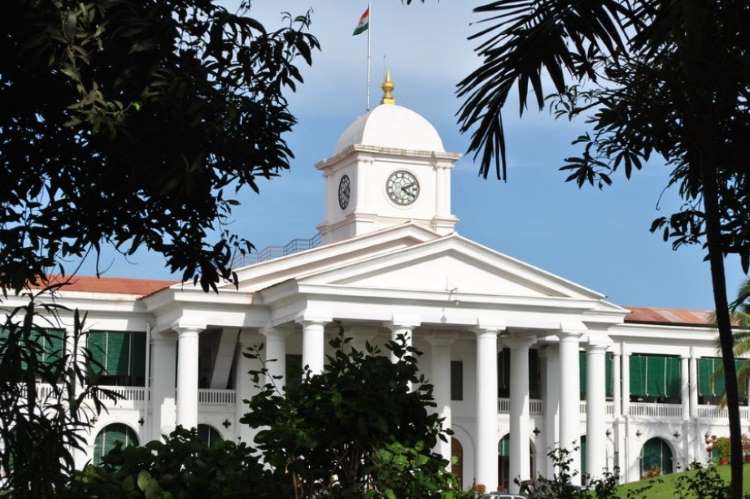
Amid the ongoing dispute between the Kerala government and the Centre, the Supreme Court has ruled that the former exceeded its borrowing limits and already received significant relief. Kerala had approached the Reserve Bank of India, unable to fulfil its welfare obligations due to the Union government’s strict borrowing norms.
The Supreme Court said that in the interim, it would consider the Union’s argument that overborrowing should lead to reduced borrowing in subsequent years. The Court referred Kerala’s challenge to the Centre’s interference with its borrowing rights and financial autonomy to a constitution bench for a more thorough examination.
READ | Bridging the Gap: Northeastern states eye economic awakening
Kerala had sued the Union government for allegedly imposing a net borrowing ceiling in an arbitrary manner, limiting its ability to raise funds, and resulting in a shortfall of funds to the tune of Rs 26,000 crore. The court had urged the Union and state governments to settle the dispute through dialogues and avoid litigation. The court suggested that the government officials in the state and the Centre should deliberate on this issue. The Union government had agreed to raise the southern state’s borrowing limit by Rs 13,608 crore, but it insisted on the entire Rs 26,000 crore, leading to further litigation.
The management of public debt is increasingly scrutinised in Centre-State financial relations, particularly after the formation of the 16th Finance Commission. Kerala’s lawsuit against the Centre’s borrowing ceiling decision highlights the ongoing tussle over debt. The Reserve Bank of India has identified Kerala as one of five states in dire need of financial rectification, alongside Punjab and West Bengal, due to its poor fiscal management.
The Union government has set a fiscal deficit to GDP ratio of 3.5% for states, with specific targets for power sector reforms and overall public debt. Kerala’s liabilities were 36.9% of its GSDP for 2024-25, with a borrowing limit set at Rs 47,762.58 crore for the fiscal year. Kerala claims it needs Rs 26,000 crore to meet its financial obligations. The Centre, denying Kerala’s request for extra funds, argued that the state was misusing borrowed funds for recurring expenses, affecting India’s credit rating and risking financial stability.
Kerala: A welfare state
The southern state is renowned for its welfare initiatives, including superior health and education services. However, its financial woes are partly due to heavy spending in these areas, necessitating fiscal restructuring.
However, questions remain about the efficiency of Kerala’s social programmes. Leakages and inefficiencies within the system can lead to higher spending without a commensurate improvement in social outcomes. Streamlining these programmes and ensuring targeted delivery could potentially reduce the financial burden without compromising on Kerala’s social goals.
The southern state’s economic structure is unique because of its reliance on remittances and a service-driven economy. The fiscal policies and borrowing limits imposed by the Centre have an impact on Kerala’s economic health. The state’s dependence on remittances, which contributes significantly to its revenue, is affected by global economic conditions. This external vulnerability makes the state’s financial model distinct and sensitive to central fiscal policies. Strengthening local industries and diversifying income sources could mitigate these risks and form a more resilient economic foundation for the state.
Kerala has criticised the Union government’s tax distribution formula, arguing that the heavy weight on income distance in the Fifteenth Finance Commission’s formula disadvantages economically stronger states like itself. The logic behind Kerala’s increasing debt, given its substantial welfare spending, is debatable. Notably, in 2022-23, Goa outpaced Kerala in per capita spending on social and economic services, funded by higher own tax and non-tax revenues. The state budget reveals a preference for non-development over development spending, with substantial allocations for pensions and subsidies, compounded by interest payment obligations.
Politics plays a role in the fiscal negotiations between Kerala and the Union government. The state’s opposition-led government often finds itself at odds with the ruling party at the Centre, leading to contentious debates over fiscal autonomy and state rights. This political friction can influence the Union government’s stance on financial aid and borrowing limits for Kerala, highlighting the intersection of politics and fiscal policy in India’s federal structure.
Another factor exacerbating the situation is the lack of a long-term, bipartisan vision for the state’s financial health. Political parties often prioritise short-term gains over sustainable fiscal practices. Fostering cooperation between the Centre and the state, regardless of political affiliation, could be crucial for developing a comprehensive and enduring roadmap for the state’s economic future.
The debate over whether Kerala’s financial struggles stem from its opposition to the Union government’s fiscal policies is ongoing. Economists have recommended revenue enhancement and expenditure cuts for fiscal recovery. Negotiating with the Sixteenth Finance Commission for targeted transfers could address state-specific challenges like demographic changes and climate impacts.
